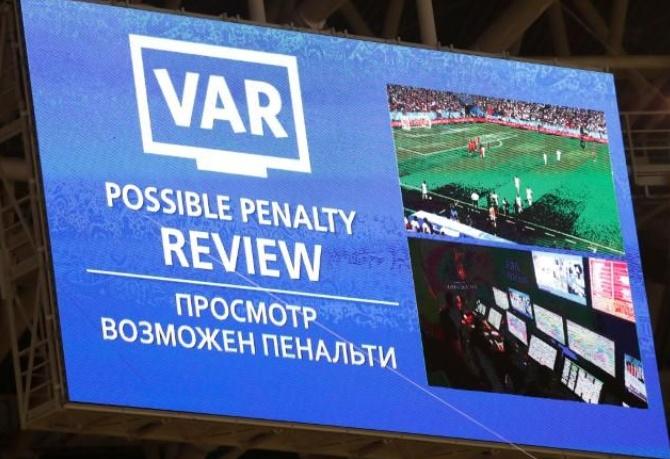
The AIFF has written to the International Football Association Board, the body that determines the laws of the game, to explore the possibility of India participating in the trial of the Additional Video Review System (AVRS).
The VAR technology, which was first used in FIFA events in 2016-17, supports the decision-making process of the referee in four game-changing situations: goals and offences leading up to a goal, penalty decisions and offences leading up to a penalty, direct red card incidents, and mistaken identity.
"Our prime objective here is to reduce the margin of error by empowering match officials with the technology to assist in their decision-making," All India Football Federation (AIFF) president Kalyan Chaubey said in a media release.
"While we will continue to work to implement VAR, I feel that, to begin with, AVRS can be a great option for a country like India.
"AVRS would help us study the impact of the technology, train our match officials with the new concept, and assess its adaptation by players, coaches, and clubs alike," he added.
The President's recommendation aims to consider the extension of the existing technical infrastructure to accommodate an 'on-demand' video review request from the referees through a multi-angle, multi-camera broadcast feed.
Several countries across the globe use VAR in their domestic club competitions after it was first introduced in Australia and the United States.
However, its mass adoption is limited due to financial and infrastructure requirements set out in FIFA's Implementation Assistance and Approval Programme (IAAP).
The President has suggested the AIFF Referee Department undertake the study to seek FIFA's suggestions and approval.
Throughout a match, the VAR team constantly checks for clear and obvious errors related to four match-changing situations.
The VAR team communicates with the on-field referee only for clear and obvious mistakes or serious missed incidents.
But it is ultimately the on-field referee who will take a call whether he needs help from the VAR.











